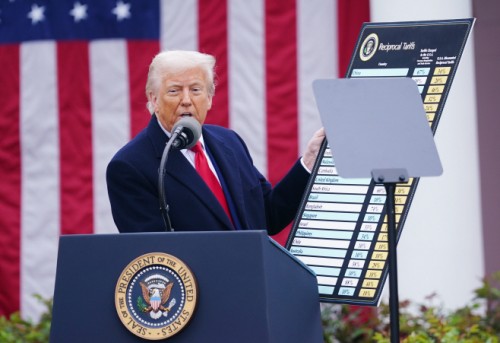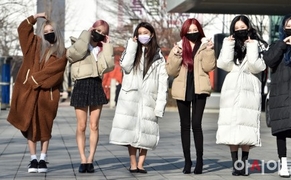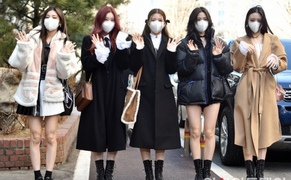 |
| U.S. President Donald Trump announces reciprocal tariffs on trading partners during a press conference in the White House Rose Garden on April 2./ Source: UPI-Yonhap |
On April 2, 2025, U.S. President Donald Trump announced the imposition of a 25% reciprocal tariff on imports from South Korea, citing what he described as unfair trade practices. Speaking at the White House Rose Garden, Trump claimed that South Korea levies a 50% tariff on American goods, prompting his administration to respond with what he called a “reciprocal” measure.
The tariff on South Korea is part of a broader trade policy shift targeting multiple U.S. trading partners. Trump also announced new reciprocal tariff rates for several other countries, including 34% for China, 20% for the European Union, 46% for Vietnam, 32% for Taiwan, 24% for Japan and Malaysia, 26% for India, 36% for Thailand, 31% for Switzerland, 32% for Indonesia, 49% for Cambodia, and 30% for South Africa. Additionally, a basic tariff of 10% will be applied to all trading partners, including close allies such as the United Kingdom.
These tariffs are divided into two phases. A basic tariff will take effect on April 5, while additional tariffs targeting what the Trump administration considers the “worst-offending countries” will begin on April 9.
President Trump explained that the tariff levels were determined by calculating a combination of existing tariffs, non-monetary trade barriers, and other forms of what he called “cheating.” He singled out South Korea and Japan for maintaining particularly strict non-monetary regulations, especially in their automotive markets. According to Trump, 81% of cars sold in South Korea and 94% in Japan are domestically manufactured, suggesting limited access for foreign competitors like American carmakers.
The U.S. Trade Representative (USTR) has previously identified several non-tariff barriers in South Korea, including long-standing restrictions on U.S. beef imports, automotive emission standards, pharmaceutical pricing systems, and digital trade regulations. These issues have been cited as obstacles to fair market access for American companies.
In 2024, South Korea's exports to the United States rose by 10.4% to reach $127.8 billion, generating a trade surplus of $55.7 billion—the country’s highest ever with the U.S., and the eighth largest trade surplus among all countries. Major South Korean exports to the U.S. include automobiles, semiconductors, petroleum products, and batteries.
Trump also pointed to the imbalance in the automotive trade with Japan, noting that while the U.S. imports nearly one million foreign-made Toyota vehicles, American carmakers like General Motors and Ford sell very few vehicles in the Japanese market. Emphasizing his view that U.S. allies are not always fair trade partners, he stated, “In many cases, our allies are worse than our enemies when it comes to trade.”
Most Read
-
1
-
2
-
3
-
4
-
5
-
6
-
7





















